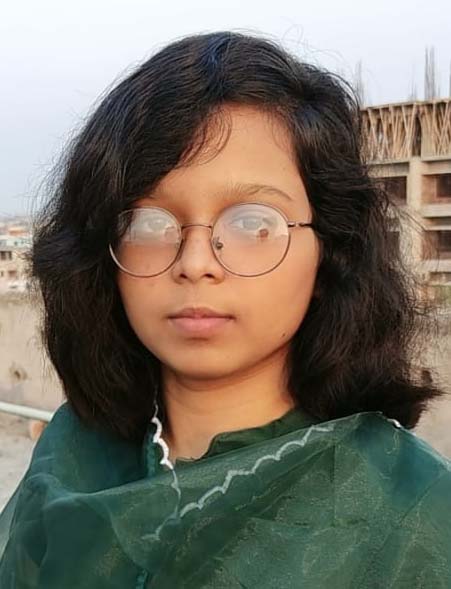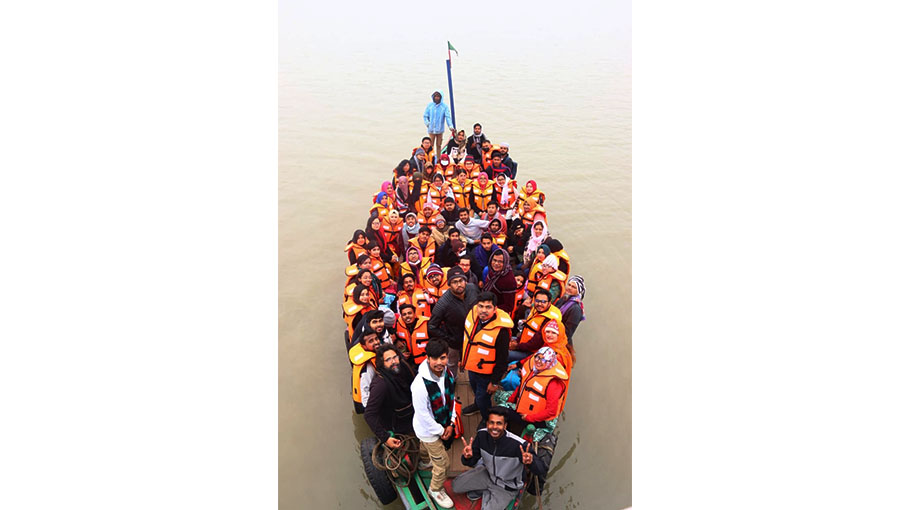A big learning from fieldwork in Khulna

The Department of Anthropology at Shahjalal University of Science and Technology (SUST) since its establishment in 1995, has been initiating several research activities and field works. Therefore, the anthropology department has now become one of the oldest and most successful ones.
As the department has been seeking to achieve the highest possible distinction for teaching and scholarly research extending boundaries of knowledge in both traditional and new fields in the social sciences, the 4th-year students of the 25th batch recently conducted their fieldwork in Khulna.
The students of anthropology department of SUST are confident as they believe they can be worthy citizens by utilising their merit and conducting work in different fields that will take the country forward.
Besides, the university authorities and most departments organise national and internal seminars, symposium and conference alongside conducting regular academic activities, examinations and research works.
We were also very excited and charmed to see the natural beauty of the Sundarbans, the largest mangrove forest of the country. The Sundarbans is a unique gift of nature for Bangladesh. The mangrove forest protects the country from the severity of natural disasters, including cyclones.
The anthropology department has given special attention to conducting research. Therefore, students of the anthropology department led by some teachers recently concluded their fieldwork in Khulna.
This involves spending a few days in the field and then working together to write a paper and give a group presentation. This is a valuable learning experience for the students of this department.
As a fourth-year honours student of the anthropology department, I also took part in the fieldwork. We all students in several groups worked together and prepared write-ups for group presentations. Really this was a very enjoyable and a valuable learning experience for all us.
Originally, the fieldwork was supposed to take place last year during our 6th semester, but the authorities had to change the date due to the January 7 national parliamentary election in Bangladesh. If someone asks why fieldwork is a major course in Anthropology, students can simply answer, fieldwork is crucial for students in anthropology because it provides them with hands-on experience in observing, interacting, and studying human cultures.
It allows them to apply theoretical knowledge in real-world contexts, fostering a deeper understanding of cultural practices and social dynamics. Additionally, fieldwork enhances skills in data collection, analysis, and critical thinking, contributing to a well-rounded education in anthropology.
This field trip was important for the students of the 25th batch because it was their last one. It started tough though. When the students and teachers arrived at CSS Ava Center in Khulna, they got sad news that a female student’s father passed away.
She had to leave, and three of our classmates went with her. They returned the next day. Dealing with this was hard for the whole team. Despite the challenges, we had to stay focused on our academic research during the trip.
The team was divided into seven groups, and each group had supervisors who guided the students in specific areas. These groups concentrated on topics such as knowledge, attitudes, and practices related to unsafe water, sanitation, and hygiene management in Notun Bazar Char in Khulna.
We also enquired about maternal health, post-antenatal care, the impact of water salinity on health in coastal regions, and other related issues.
After completing the fieldwork in a day and a half, the entire team moved to the ship and stayed there for two nights. The organizing committee had arranged visits to three places: Andarmanik, Karamjol, and Hariabari in the Sundarban area. Everyone had a good time, but the students had to give presentations late at night during their stay.
Students were thankful to the convener of this fieldwork Professor Md. Mokhlesur Rahman since he arranged the pleasure trip alongside the academic session. A student, Fariya Akter Rupa expressed, “It was truly delightful. The idea of finding pleasure alongside the academic session was never anticipated before. Even after returning to Sylhet, my mind continues to linger in the fields of Khulna and the sanctuary of the Sundarbans.”
Besides, we all are very grateful to our classmate Samiur Rahman Anadi, who was responsible for the money and accounts of our field tour. He made sure that everything was running smoothly
When we interviewed a group of people working in the New Bazar Char slum area, they shared insights into the water situation at Rupsa in Khulna city. Despite having access to water through supply pipes, the slum residents avoid using it for drinking due to the noticeable smell of bleaching powder.
Instead, they go to great lengths to fetch deep tube well water for drinking, as it's perceived to be safer. Replying to queries about using supply water for cooking despite not drinking it, they explained that boiling the supply water requires a significant amount of wood, which is financially burdensome for them.
As a result, they opt for deep tube well water for drinking and use supply water for cooking out of necessity, despite its odor. They do not use any soap in the bathroom, which lead to various health issues.
These included stomach upset, dysentery, diarrhoea, dengue, fever, and more serious complications. But, they are aware that using soap in the bathroom is important for maintaining good hygiene and preventing the spread of diseases.
However, many people there are still unable to access safely managed household drinking water, sanitation and hygiene services. So, investment in water, sanitation and hygiene must be a priority to build more resilient health systems.
The time has come to dramatically accelerate our efforts to provide every child and family with the most basic needs for their health and well-being, including fighting off infectious diseases.
We the students led by our brilliant teachers want to work together to further improve quality education, matching the global standard by frequent conducting field works and research. The quality of education in the country has improved a lot.
We the students of the anthropology department want to keep up with the global standard by improving quality education even further. This is our target and we must work to attain that goal.
Our department has taken steps to make the education system multidimensional. The students of the anthropology department do not want to lag behind. Therefore, we are trying our level best to maintain a pace similar to that of global education as we can claim ourselves meritorious.
As part of the initiative to make education multidimensional, our teachers also want to turn us into a skilled workforce to meet the ever-growing demand at home and abroad ahead of the fourth industrial revolution.
The teachers and students of the anthropology department always stress the need for conducting more fieldwork and research to make the country’s overall development sustainable. We believe everyone will get a better life by transforming Bangladesh into a ‘Smart Sonar Bangla’ free of hunger, poverty or any sort of exploitation by 2041.




